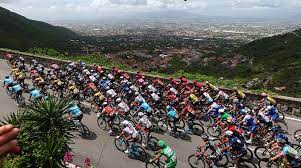British Cycling announces strict rules for transgender and non-binary athletes

NEW DELHI: British Cycling on Friday implemented stricter regulations regarding the participation of transgender and non-binary athletes, introducing a division of cyclists into “female” and “open” categories.
The existing female category will continue to cater to individuals who were assigned female at birth, as well as transgender men who have not undergone hormone therapy.
Meanwhile, a new open category has been established to accommodate male athletes, transgender women and men, non-binary individuals, and those whose sex was assigned male at birth.
This significant policy change follows a comprehensive nine-month review conducted by a working group, which included input from 14 focus groups and several one-on-one interviews – including dedicated sessions for female Race Licence holders and trans and non-binary members.
“Our aim in creating our policies has always been to advance and promote equality, diversity and inclusion, while at the same time prioritising fairness of competition. This aim has not changed: it has been central to our review and we remain committed to this vital work,” stated a media release.
As a result of this review, two new policies have been introduced: the Policy for Competitive Activity, applicable to all British Cycling-sanctioned competitive events, and the Policy for Non-Competitive Activity.
The endorsement of these new policies by the board last month signifies their importance, and the full implementation is expected to be completed by the end of 2023.
Cyclist
“Our new policies are the product of a robust nine-month review process which we know will have a very real-world impact for our community both now and in the future. We understand that this will be particularly difficult for many of our trans and non-binary riders, and our commitment to them today is twofold,” said, British Cycling CEO, Jon Dutton.
“First, we will continue to assess our policy annually and more frequently as the medical science develops, and will continue to invite those impacted to be an integral part of those conversations. Second, we will also continue to ensure that our non-competitive activities provide a positive and welcoming environment, where everyone can feel like they belong and are respected in our community, and take action to eradicate discrimination from the sport,” Dutton added.
Courtesy : TOI
Note: This news piece was originally published in timesofindia.com and used purely for non-profit/non-commercial purposes exclusively for Human Rights







